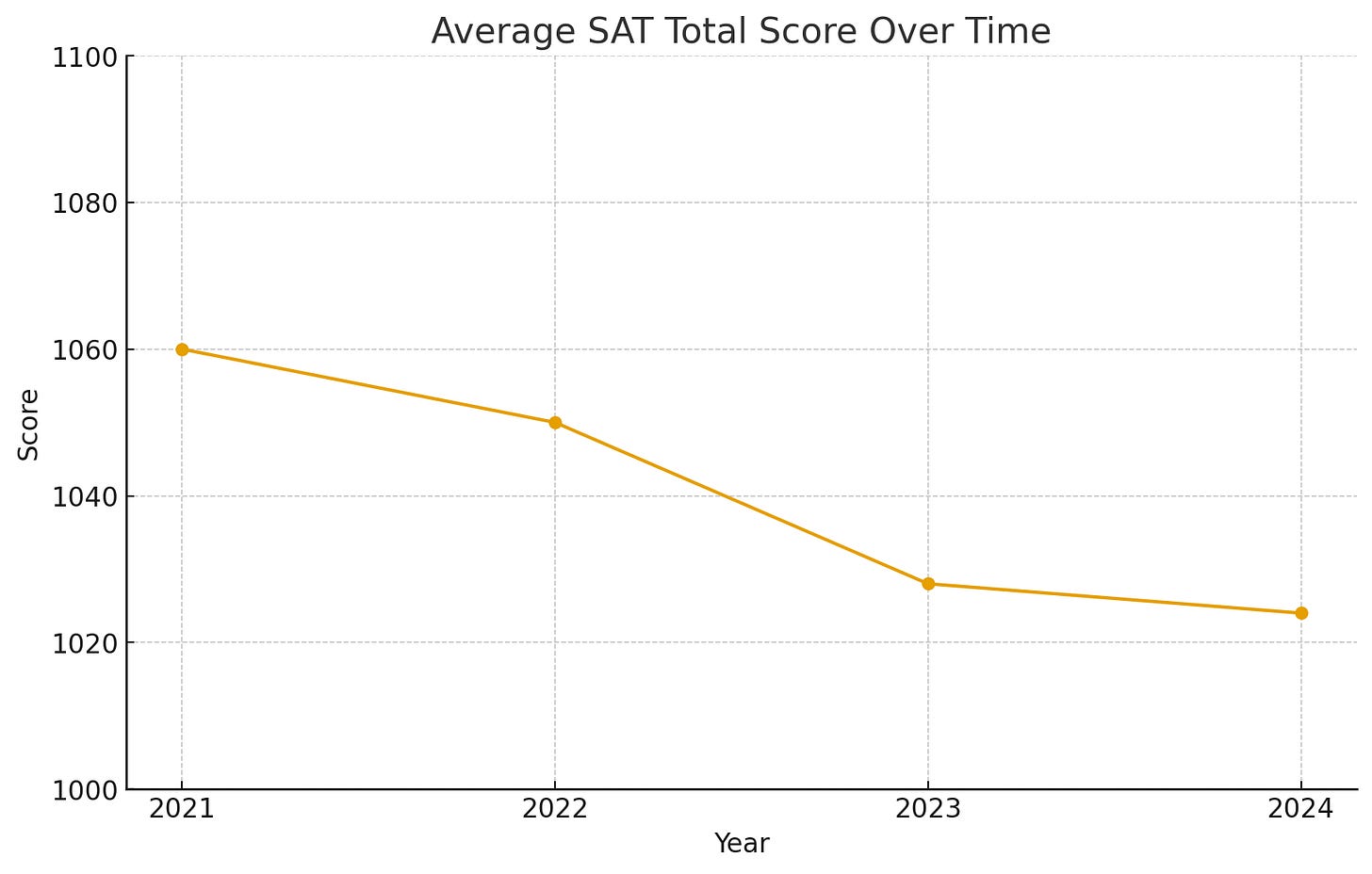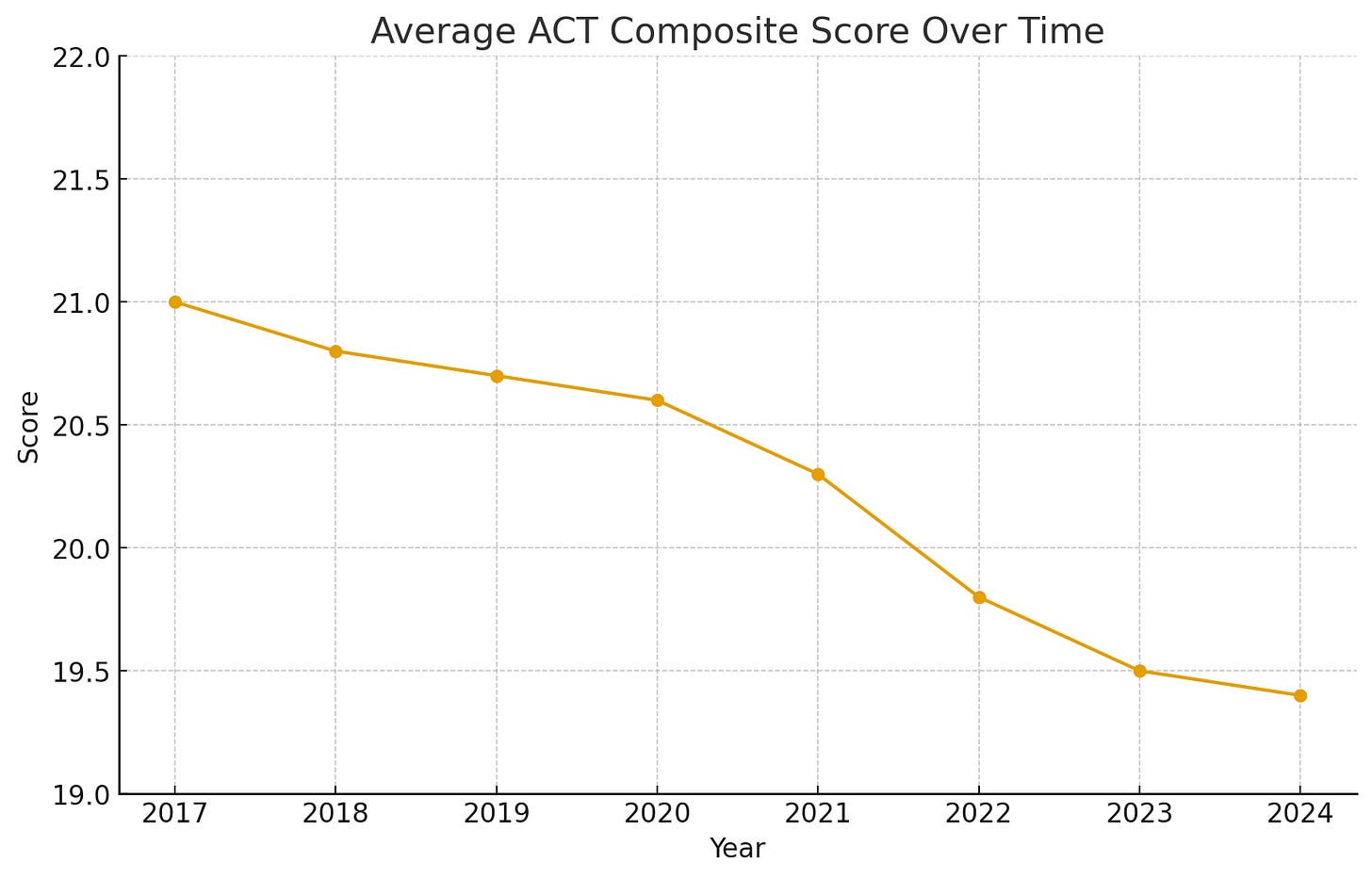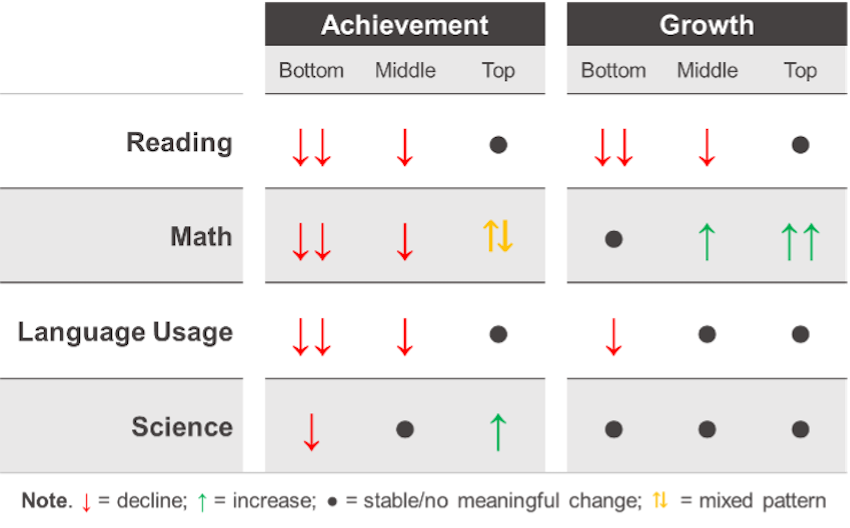Rethinking Academics in Christian Schools
Is Our Learning Model Still Serving Students Well?
Christian schools exist to disciple students—to form hearts and minds to know and follow Jesus. Biblical worldview development and Christ-centered character formation are foundational and always will be.
But while our mission remains anchored, our instructional methods must be examined.
Are our current academic models truly serving today’s students?
Many Christian schools still operate on a traditional “teach to the middle” approach — a model that assumes most students learn at roughly the same pace, with similar needs. Administrators and teachers struggle with the idea of “keeping high standards” but also wonder what exactly that means in today’s learning environment.
Yet the students walking into our classrooms today are not the same students of twenty years ago.
The Academic Landscape Is Quickly Changing
National Performance Is Declining
SAT Average Scores
2021: ~1060
2024: ~1025
ACT Composite Scores
2017: 21.0
2024: 19.4
Scores aren’t dipping slightly — they’re sliding year after year. Christian schools may be outperforming the national average in many cases, but we are not immune to national learning trends.
Meanwhile, 2025 NWEA K-12 MAP norms, in comparison to prior norms that were released in 2020, confirm a regression in learning.
The learning spectrum is wider than ever.
More Students Require Differentiated Support
According to NCES, 15% of U.S. students now receive special education services — the highest rate in decades. On the longer time horizon: it’s reported that the number of public school students in special education has doubled over about 45 years (from ~3.6 million to ~7.3 million). Christian schools are also being impacted by this reality. Of course, this data doesn’t count:
Undiagnosed learning differences
Attention and processing difficulties
Students needing emotional or behavioral support
Exponential increase in diagnosed student anxiety
Does a One-Size-Fits-All Model Still Work?
Families now expect Christian schools to provide:
Strong biblical worldview formation
Safe, values-aligned community
Rigorous, personalized academics
Support for individual student needs
Traditional mindset:
Time is fixed; learning is the variable
Translation: We’re planning “curriculum and pacing” regardless whether the student learns it or not, leaving the school to promote sink or swim mentality, or even worse, social promotion void of demonstrated competency.
Future-ready Christian education:
Time is the variable; learning is the constant
Translation: We plan curriculum, scope and sequence, but these are only tools to help students become proficient in meeting or exceeding the established set of learning targets. The emphasis is not on getting through curriculum, it’s ensuring learning is occurring and making adjustments, interventions, etc. in real-time.
If every student is uniquely made by God, how can a system built on uniform pacing and middle-target instruction fully honor that truth?
Key Questions for School Leaders
Are we designing instructional models for the students we have, not the ones we used to have?
What is our plan for supporting struggling learners and to accelerate advanced ones?
Are we measuring learning and adjusting instruction thoughtfully and not reactively?
Is learning mostly about point accumulation or are students invited to set goals and obtain them?
Are we equipping teachers for the realities of today’s classroom?
Do our systems honor the Imago Dei in every child?
Final Word
Christian education must be rooted in the unchanging truth of Scripture and responsive to the changing needs of students.
Rethinking academics isn’t about chasing trends or compromising mission, but we must first take inventory of our existing systems.
The data is clear. The needs are real. The opportunity is great.
Our students deserve our best — spiritually and academically — because both matter deeply to God.
Let’s discuss specifics on how we might rethink academics in the next few posts.





Love how you thoughtfully articulate these innovative concepts. Impressively communicated so, so well🙌😊